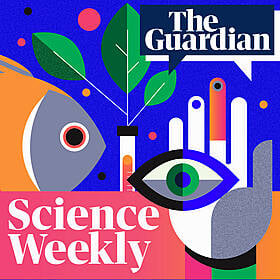
Science Weekly
Twice a week, the Guardian brings you the latest science and environment news

Surviving 200 snake bites, decoding ancient scrolls and the countries ‘flourishing’
21 mins
8 May Finished

Evidence of alien life, a clue about the rise of bowel cancer, and a new colour?
20 mins
24 April Finished
























